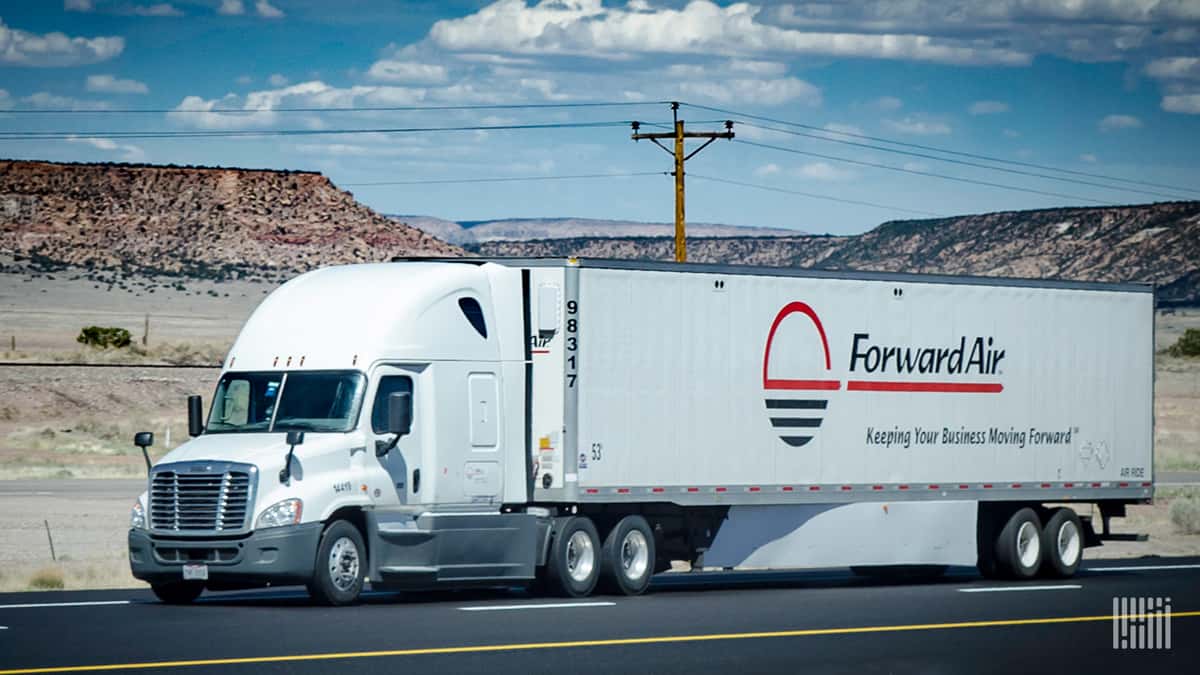In the dynamic world of logistics, where speed and efficiency are paramount, the concept of forward air has emerged as a game-changer. Forward air, also known as air freight or air cargo, represents a vital component of the global supply chain, facilitating the swift movement of goods across vast distances. This article delves into the evolution, significance, and impact of forward air in modern logistics.
The Evolution of Forward Air:
The roots of forward air can be traced back to the early 20th century when aviation technology was still in its infancy. As aircraft technology advanced, particularly following World War II, the possibilities for transporting goods via air expanded exponentially. The introduction of dedicated cargo planes marked a significant milestone, allowing for the systematic and efficient movement of freight.
Over the years, forward air has undergone continuous evolution, with advancements in aircraft design, navigation systems, and cargo handling technologies. Today, a diverse fleet of cargo planes, ranging from smaller regional jets to massive long-haul freighters, crisscross the skies, connecting distant corners of the globe in a matter of hours.
Significance of Forward Air in Modern Logistics:
- Speed and Time Sensitivity: Forward air is unparalleled when it comes to delivering time-sensitive and high-value goods. Industries such as pharmaceuticals, electronics, and fashion heavily rely on air freight to ensure that their products reach their destinations swiftly. This speed is a crucial competitive advantage in the modern business landscape.
- Global Connectivity: Forward air plays a pivotal role in establishing and maintaining global supply chains. It connects manufacturers with markets, enabling businesses to operate on a global scale. This connectivity is especially vital for industries with complex and interdependent supply networks.
- Flexibility and Adaptability: Air cargo is known for its flexibility and adaptability. Unlike other modes of transportation, air freight can quickly adjust to changes in demand, unforeseen disruptions, or urgent requirements. This adaptability is a key factor in minimizing supply chain disruptions and ensuring a steady flow of goods.
- Reduced Inventory Costs: Forward air allows businesses to maintain lower inventory levels by facilitating just-in-time deliveries. This, in turn, helps reduce holding costs and ensures that products are delivered to customers as soon as they are needed, minimizing the risk of overstocking or stockouts.
- Reliability and Security: Air cargo operations are characterized by high levels of reliability and security. Strict regulations and advanced tracking systems contribute to the safety and security of goods during transit. This reliability is particularly crucial for industries dealing with perishable or sensitive products.
Impact on Various Industries:
- E-Commerce: The rise of e-commerce has significantly benefited from forward air. With consumers expecting rapid delivery times, air freight provides the speed and efficiency required to meet these expectations. E-commerce giants rely on air cargo to transport a vast array of products, from consumer electronics to fashion items, ensuring quick and reliable deliveries.
- Pharmaceuticals and Healthcare: The pharmaceutical industry, with its emphasis on time-sensitive and temperature-controlled shipments, heavily relies on air freight. Forward air ensures the swift delivery of life-saving drugs, vaccines, and medical equipment, playing a crucial role in global healthcare logistics, especially during emergencies such as pandemics.
- Automotive: The automotive industry leverages air freight for the rapid transportation of critical components, minimizing production delays and ensuring a streamlined supply chain. Just-in-time manufacturing practices, common in the automotive sector, are made possible through the speed and reliability of forward air.
- Perishable Goods: Industries dealing with perishable goods, such as fresh produce and seafood, benefit from the speed of air freight. Quick transportation helps maintain the quality and freshness of these goods, allowing suppliers to reach international markets while ensuring product integrity.
Challenges and Future Trends:
While forward air has revolutionized logistics, it is not without challenges. High operational costs, environmental concerns, and limited capacity during peak times are among the issues faced by the air cargo industry. However, ongoing innovations, such as the development of sustainable aviation fuels and advancements in cargo handling technology, aim to address these challenges.
Looking to the future, the role of forward air is expected to evolve further. The integration of artificial intelligence and data analytics into air cargo operations promises enhanced efficiency and visibility. Additionally, advancements in drone technology may open up new possibilities for last-mile deliveries, further increasing the speed and reach of air freight services.
Conclusion:
Forward air has become an indispensable force in modern logistics, connecting businesses, industries, and consumers across the globe. Its ability to provide unparalleled speed, reliability, and flexibility has transformed the way goods are transported, making it a cornerstone of the global supply chain. As technology continues to advance, the future of forward air holds exciting possibilities, ensuring that the skies remain a crucial conduit for the movement of goods in the ever-evolving world of logistics.

